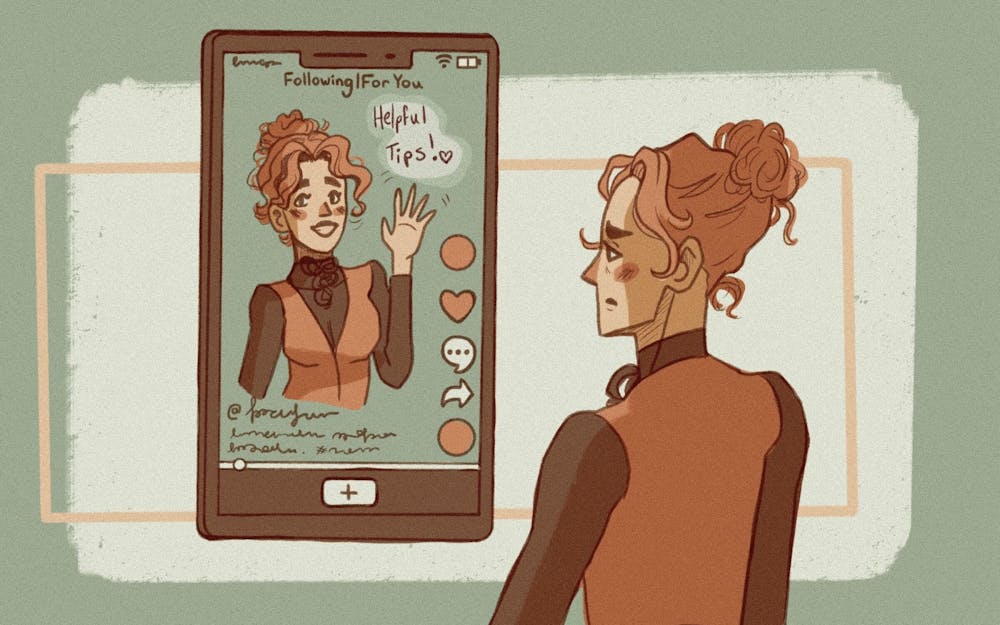Since the rebranding of Musical.ly to TikTok and its major growth in 2018, TikTok’s popularity has skyrocketed, and it is now one of the most popular social media platforms.
Certain features of TikTok make it different from other popular social media apps, such as using notable “sounds,” a green screen feature and a focus on short videos.
Many TikTok videos also focus on educating audiences. Some are quite beneficial, like teachers adapting their lessons into TikTok videos to appeal to more students, or healthcare workers documenting overwhelming work during the COVID-19 pandemic. These uses of TikTok are actually helpful in spreading valuable information.
However, TikTok also has some harmful aspects. It has propelled a new way of thinking upon its users. There are way too many videos consisting of strategies on how to change certain aspects of yourself.
One example is how there are countless videos under the hashtag #hipdips of creators offering workouts that target fixing “hip dips,” which are inward curves below your hips.
These kinds of videos are inherently problematic because they suggest hip dips are a problem that must be fixed. However, if I had not downloaded TikTok, I probably could have gone the rest of my life without ever hearing the phrase hip dips.
Though users posting these videos may have the skewed perception that these “tips” are helpful, they are actually condescending and damaging to some viewers’ self-esteem.
And according to Women’s Health, the idea that hip dips are not normal is incorrect. That subtle inward curve just below women’s hips is totally natural and seems to depend on genetics.
Although these videos promote exercise, they cause more harm than good. Encouraging exercise should be about showing the long-term health benefits, not comparing your physical appearance to others.
TikTok promotes unrealistic beauty standards more than any other platform. Many of its other trends are rooted in toxicity as well, such as the ”I ain’t never seen two pretty best friends, it’s always one of them gotta be ugly” and the “I was the girl he didn’t want, so I became the girl he couldn’t have” trends. These are both opportunities for users to degrade women and “brag” about their physical appearance — often only featuring white people, western beauty standards and the “perfect” face or body.
But no one should have to think they are less valuable because they do not have their idea of a “TikTok” body.
According to TikTok’s official website, there are protocols in place that are supposed to prevent content that does not “support the positive, inclusive and safe experience” TikTok claims it provides users.
Such rules include that weight management products are only allowed to be advertised to users aged 18 and older. Others include restrictions on advertisements talking about weight loss and weight management, where under the guidelines, ads cannot foster negative body image or negative relationships with food for users.
These regulations may seem effective, but they don’t cover the creators that are not posting for money, but because these content creators think they are providing useful workout tips. There are also so many TikTok videos that get reposted on Instagram, making harmful information more widespread.
Since I am 20 years old, I can recognize and research that having hip dips is neither dangerous for your health nor something you need to fix. However, I worry for the kids growing up on TikTok. I am so thankful my childhood was not so heavily dominated by social media like today’s younger generation is.
Though it does have some body positive communities, I hope TikTok can someday become a less destructive place with minimal toxicity.
Kara Acinapuro (she/her) is a junior studying media advertising. She is vice president of Women in Media and a member of Alpha Phi Omega.






